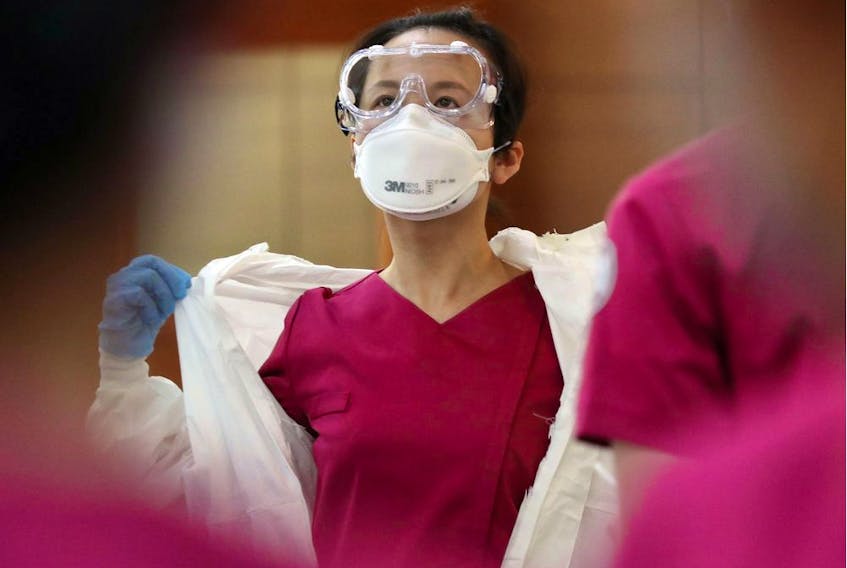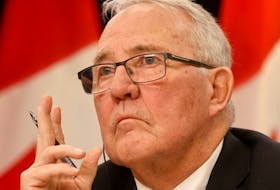“Things will get worse … how much worse we’ll get will depend on our ability to do two things: contain the influx of people who are infected coming from the outside, and the ability to contain and mitigate within our own country.”
— Dr. Anthony Fauci, director of U.S. Institute of Allergy and Infectious Diseases.
How does this COVID-19 pandemic compare with SARS and what should we have learned?
SARS caused 774 deaths worldwide; 43 in Canada. Nearly half of infections involved health workers. The World Health Organization (WHO) has termed COVID-19 a “pandemic;” it has spread to 133 countries and territories with over 140,000 cases, and some 5,100 deaths — nearly seven times that of SARS, in less time.
Federal Health Minister Patty Hajdu has estimated that 30-70 per cent of Canadians might be infected eventually. How bad could it get? Diane Francis (Financial Post, March 13) warns that it could cause 510,000 fatalities. She blames the 3.4 per cent mortality rate in Italy on the fact that 23 per cent of its residents are age 65 or older. However, although only 17.5 per of Canada’s overall population are seniors, the number in 2018 was about 21.5 per cent for the four Atlantic provinces.
In 2004, Ottawa created the Public Health Agency of Canada, which works with the provinces, territories, and Chief Medical Officers of Health. The SARS virus was characterized early, case contacts were tested and quarantined, and the public was kept well-informed. Yet one unresolved problem is assuring financial compensation to those placed in quarantine.
Recall that in 2003, the Ernie Eves government in Ontario was initially opposed to this, but eventually bowed to pressure, and by June 2003 offered $500-$6,000 to persons who lost income due to SARS for more than five days. Part-time workers received $250.
Physicians were eligible for the “SARS Income Stabilization Program” if they were quarantined, were sick with SARS, had hospital practices adversely affected (e.g., by elective surgery cancellations) or who suffered a loss of income because patients were reluctant to visit their offices. They received 80-100 per cent compensation of lost income. Eventually, MDs, nurses and paramedics received a total of $190 million. Such a program should be again available across Canada for all physicians and health professionals. As Dr. Tedros Adhanom Ghebreyesus of WHO asserted, “We can’t stop COVID-19 without protecting our health workers.”
Federal NDP health critic Don Davies wrote: “People who can’t afford to take a sick day need help right now.” Many persons live “paycheque to paycheque” and have no sick leave. They may be working part-time or are self-employed.How can they be persuaded to remain in quarantine?
In Ontario, about 29 per cent of nurses are part-time, and 13 per cent are casual; many work in multiple institutions. They have no sick benefits and must rely on Employment Insurance. The federal government has pledged to eliminate the normal two-week waiting period. However, many nurses do not qualify for EI.
Physicians placed in quarantine would have to wait at least 30 and often 90 days or more before collecting private insurance benefits. If elective surgery is cancelled for weeks to make room for COVID-19 patients, this will have major economic effects on surgeons and anesthetists. Their disability insurance would not cover them.
Many provinces are setting up freestanding COVID-19 testing centres or home-testing by paramedics. In addition, Ontario has agreed to establish new fee codes so that MDs could be paid by government to renew prescriptions and give advice to patients over the telephone. Other provinces should follow suit.
Since the advent of SARS, we have squandered the time to prepare for the next pandemic, and still have 15 per cent alternate level of care (ALC) patients in acute hospitals, so that especially in Ontario, many operate regularly at 100-120 per cent capacity, with some patients lying in hallways. There is no redundancy or surge capacity.
Even while dealing with the pandemic, we should also initiate concrete plans to build new chronic care beds across Canada. Quebec has roughly 16,000 “physical health and geriatric” beds (an approximation for acute care beds) and the rest of Canada has 57,000 acute care beds, but we rank 26th out of 27 in beds per thousand persons among countries with universal health care. Meanwhile, according to Michel Bilodeau (Ottawa Citizen, March 4) , Ontario has 78,000 long-term-care beds, but needs an additional 34,000 just to meet current needs, and in 25 years will need 280,000 LTC beds — over 200,000 more than the current number. This cannot be implemented in time to deal with COVID-19, but might help us prepare for subsequent pandemics and could create thousands of jobs.
Unfortunately, Canada, like the United States, has been running up deficits and has not been saving during “good times.” Our federal debt has increased by 5.6 per cent over the last five years. This year, the total federal/provincial debt is projected to reach $1.5 trillion. We have little room to maneuver.
No wonder Canadians are apprehensive. Recently, oil prices saw the greatest one-day drop since 1991, and the TSX suffered its greatest one-day decline since 1940.
Italy has been locked down. Many U.S. jurisdictions have declared “states of emergency.” Concerts, Broadway shows, sporting and political events, and medical meetings have been cancelled. Over 100 American colleges and universities (including Princeton, Harvard, Yale, MIT, and Columbia) have suspended in-person classes after spring break. St. Patrick’s Day parades will not occur in several cities around the world, including Halifax. Disney theme parks have closed. The Juno awards have been cancelled. Even Sophie Trudeau has acquired COVID-19, the prime minister is in quarantine, and the first ministers’ meeting in Ottawa will not take place. On March 13, Donald Trump declared a “national emergency.”
A few days ago, Trump prohibited — for 30 days — non-American citizens from flying from Europe to the United States; however, I fear that many may then change their itinerary and travel via Halifax, Montreal or Toronto, with a possible surge in COVID-19 infections in those cities.
Thus, Canadians, and especially health workers, urgently need to hear, in concrete terms, how personal health and finances will be protected. Mere platitudes will no longer suffice.
As Dr. Ghebreyesus warned, “This is not a drill. This is a time for pulling out all the stops.”
Ottawa physician Dr. Charles S. Shaver was born in Montreal. He graduated from Princeton University and Johns Hopkins School of Medicine. He is Past-Chair of the Section on General Internal Medicine of the Ontario Medical Association. The views here are his own.









